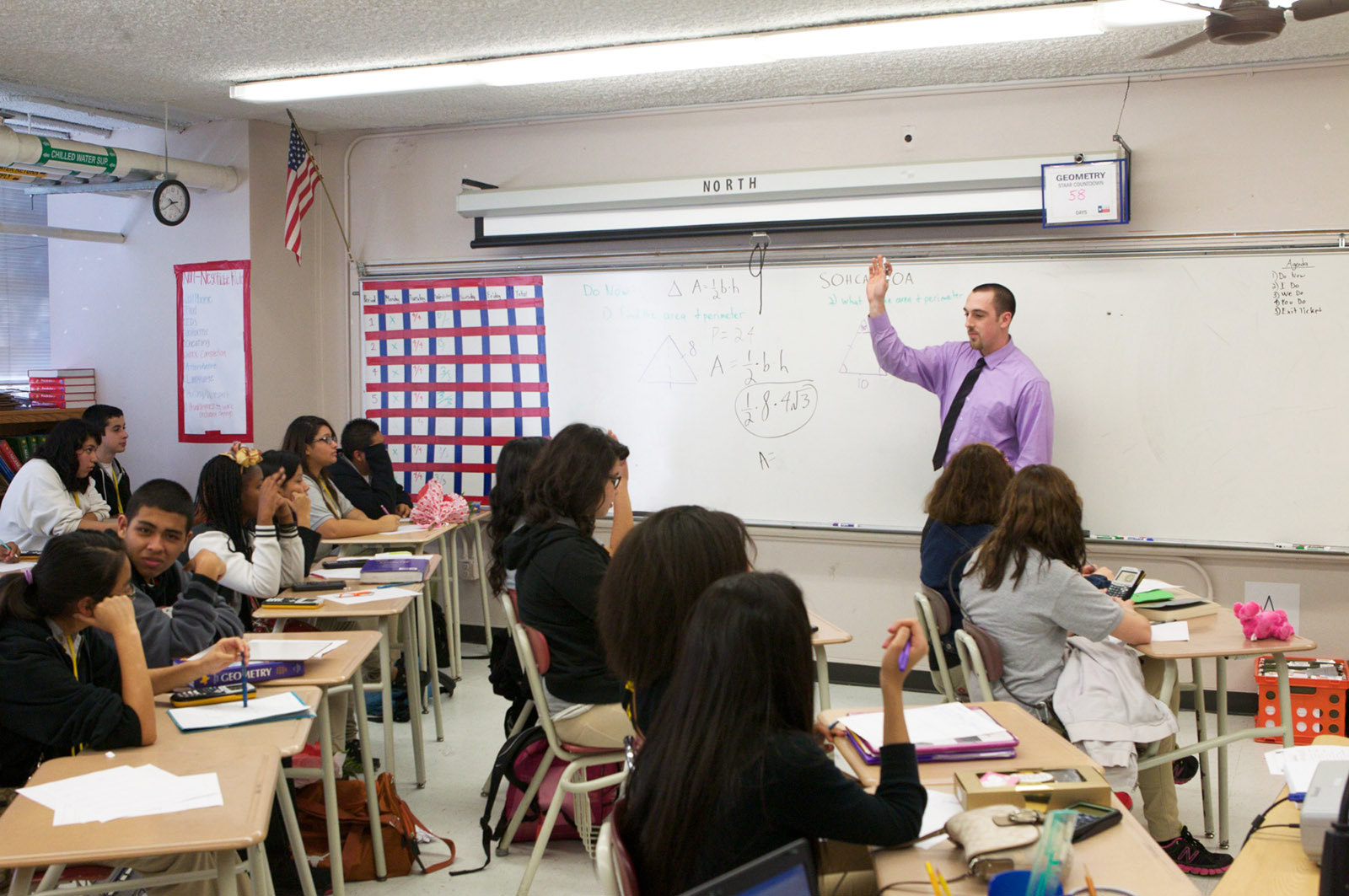Submission: Students must participate in community efforts to improve education

Students have the ability to help improve the state of the United States’ education system by volunteering through organizations poised to enfranchise underserved communities through diverse education opportunities. Working with individuals is the only way to eventually create lasting and institutional change. (U.S. Department of Education)
By Daily Bruin Staff
Feb. 17, 2016 10:37 p.m.
Since its debut, Nigerian writer Chimamanda Ngozi Adichie’s TED Talk, “The danger of a single story” has become an integral part of my classroom with its message of not taking a single story as the ultimate truth. It allows us to discuss identity, who we are, who gets to tell our stories and how people view others because of said stories. I know these lessons are important for all my students, especially my students of color, because they experience so many of the struggles of the past in their own present like when they turn on the news and see another person who looks like them lose their life to violence or systemic injustices like police brutality, lead paint or lead pipes.
While I was an undergraduate at UCLA, campus was a place where I was able to stand in my own identity, where I found like-minded individuals who pushed each other to succeed, and most importantly, a place where I could create my own story. Just a few miles off campus, I tutored local middle and high school students through Umoja and worked with America Reads to promote literacy in local elementary schools. One of the third graders I assisted worked incredibly hard, but no matter how much he tried, there were days where “The Cat in the Hat” felt miles out of reach. I knew the window was closing for him. If he didn’t catch up quick, reading – and therefore school – would always be a frustrating, disappointing struggle.
As someone who was fortunate enough to grow up with a love of reading and learning, I joined Teach For America because I wanted to both equip my students with the literacy skills they need to be successful and teach them that they have the power to write their own stories. My kids are not their circumstances, test scores or the stereotypes that swirl around them. They are full of life and have the opportunity to do great things as long as they have the support and guidance they need.
Now in my eighth year in the classroom, my school setting has changed and I can see the impact on students when they attend a school that is project-based and arts-integrated. Students always come with a desire to learn and work hard, but this year, they also come with the desire to ask questions and understand. My students don’t only hold me accountable for their learning, they hold each other accountable.
This is in stark contrast to one of my most heartbreaking experiences last year as a teacher when I heard a student explain to his peers that it’s normal for black students to act out during class time. Only in a “white” school would students sit there quietly and do the work, he explained. Needless to say, we had many conversations about this. But even as I worked to explain what a gross misperception he had accepted based on stereotypes, in the face of years of conditioning under those societal stereotypes about people who look like him, he remained skeptical, at best.
Unfortunately, not every student has the opportunity to attend an arts-integrated project-based school – and it’s not just due to school lotteries – as the traditional school model is ubiquitous and part of our educational tradition. In the face of these realities, we have no time to waste. This past school year marked the first in which the majority of public school students are minorities. Our generation has a responsibility to work to ensure that each and every one of them is moving through a system that affirms their identities, shows them they’re valued and allows them access to the opportunities they have been denied for far too long.
We have a long way to go as a country before we truly achieve justice for all. To fix the systemic oppression that has created the gross inequality of the present will take the hard, dedicated work of countless leaders and change-makers – many who have experienced it firsthand, others who bear witness to it. As UCLA students and alumni, we must work toward these long-term changes as well as the immediate, urgent opportunities to change the way our students view themselves and their futures.
Every single one of us can play a central role in this, whether it’s volunteering through organizations like Umoja or participating in first-year summer programs to help make sure students, like the ones I teach, are able to follow in our footsteps. Every day, we can remind kids that their thoughts, ideas, identities and opinions are important. We can share our own stories so that when our kids look to the front of the room, they see a little bit of themselves reflected back. We can remind them that they matter, that they always have and that they always will.
Rushie McLeod is a UCLA alumnus who graduated in 2000.

